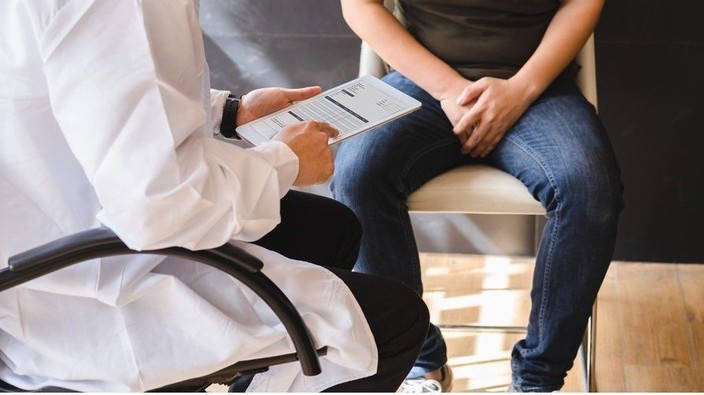keenan: take care of your prostate and it will take care of you
i was introduced to the prostate gland by my grade 7 en...

korrawin
/
getty images/istockphoto
i was introduced to the prostate gland by my grade 7 english teacher. the story isn’t as racy as it sounds. she was trying to hammer home the importance of accurate pronunciation, noting that whenever she hears “prostrate gland,” – she imagines this poor tired organ lying down for a rest.
today, it’s impossible to watch a tv news channel, especially from the u.s., or to walk down the aisle at walmart without being reminded of your prostate. a commercial for a surgical procedure shows a dribbling firehose replaced by one gushing full force. an infomercial for a prostate health supplement claims that nasa developed a secret formula to help astronauts pee in zero gravity, and now you can buy it online. another product made from seaweed extracts slyly mentions its “pro-erotic side effect.”
how do we separate the noise from the wisdom?
first and foremost, you should definitely discuss any concerns with your family physician, who might refer you to a specialist. dr. mark assmus is an endourologist and clinical lecturer in the department of surgery at the university of calgary. he kindly agreed to give us some general advice about our prostates.
“each individual prostate grows at a unique rate and shape,” he says. “in general, as men age, the prostate can become larger, and this can lead to increased urinary symptoms.” however, “men with ‘normal’ or ‘small’ prostates can also experience urinary symptoms worth discussing with a physician, and conversely, some men with large prostates may have no concerns.”
advertisement
as for those supplements, he is quite clear, saying, “the average guy does not need to take a supplement to improve their prostate/bladder health.” because many over-the-counter products claim to be “all-natural,” some people assume they are harmless. assmus disputes that, noting, “just because a product can be obtained without a prescription and is marketed as a natural way to manage a symptom, does not mean that it is without risk and side effects and does not inherently make that option safer.”
saw palmetto, a common ingredient in these products, “can impact the conversion of testosterone to dihydrotestosterone (dht) in a similar manner to prescribed medications like finasteride or dutasteride.” assmus adds that some people using saw palmetto have increased bleeding and gastrointestinal upset. he also notes that a doctor-prescribed medication will have an exact dosage quantity and schedule, and he advises telling your doctor if you are using any prostate health supplements.
there are also surgical procedures to address symptoms of an enlarged prostate gland, known as benign prostatic hyperplasia (bph). these typically include removing some prostate tissue using water, steam or a laser. one approach, called transurethral resection of the prostate (turp), is still the gold standard for treatment, though it can have side effects such as interfering with ejaculatory volume.
advertisement
one of the newer bph treatments came from a 2004 collaboration between a ph.d.-holding bioengineer named ted lamson and dr. josh makower, professor of medicine and bioengineering at stanford university. called urolift®, it uses implantable clips to physically hold enlarged prostate tissue out of the way, unblocking the flow of urine. this can be done under local anesthesia and generally preserves ejaculatory volume. for some patients, urolift® has its advantages, but a significant number of guys may need further prostate treatment within five years.
as always, you should consult your doctor about your symptoms and options. however, assmus says there are things you can try on your own that may help with the urinary symptoms of bph. one is to tell your bladder who’s boss. “timed voiding on regular intervals to reduce holding urine for extended periods and double voiding to ensure all urine is emptied from the bladder can be valuable,” he notes. he goes on to explain that many conservative lifestyle behaviours can also help with urinary symptoms. these include “maintaining a healthy body weight, ensuring adequate hydration, good diet and exercise.”
assmus suggests minimizing bladder irritants like caffeine and alcohol, especially in the evening. so, your next italian meal should not end with a double espresso and a flaming sambuca if you want to sleep through the night without getting up to pee at 3 a.m.
advertisement
dr. tom keenan is an award-winning journalist, public speaker, professor in the school of architecture, planning and landscape at the university of calgary, and author of the best-selling book, technocreep: the surrender of privacy and the capitalization of intimacy.
 3 minute read
3 minute read
